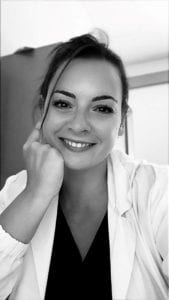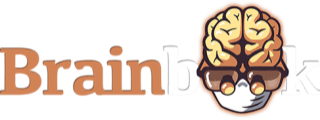Neurosurgeons thrive on adrenaline. Whether it be the unexpected chaos of being the ‘on call’ neurosurgeon for a day, having to complete 3 complex operations during a day in the operating theatre or having to consult and manage 12 patients in a morning in the outpatient clinic, the daily life of a neurosurgeon is seldom quiet. Most of the time, you find yourself managing multiple tasks at once and periods of downtime are few and far between.
we have recorded single nerve cells in our brains that respond specifically to pictures of Jennifer Aniston
One would think that these responsibilities would be enough to keep us busy, but many neurosurgeons are also neuroscientists. The unparalleled access we have to the human brain lets us study how the brain works both in health and disease. For example, we have recorded single nerve cells in our brains that respond specifically to pictures of Jennifer Aniston, a line of work that has helped us understand how we translate everything we perceive (see, hear, touch, taste, smell) into memories. Our patients (eg with brain tumours or strokes) may develop specific problems with speech or memory and significant work has gone into finding out why these occur. This has helped us not only understand the brain but also tailor surgery and other treatments to minimize worsening such problems.
Some neurosurgical diseases such as certain brain tumours (eg glioblastoma in adults and diffuse intrinsic pontine glioma (DIPG) in children) are devastating and clearly our understanding is not where we would like it to be. Currently, our surgery and care is with a view to slow the progression of disease and improving quality of life as much as possible for these patients and their families. However, our access to tissue from these patients is vital and, in collaboration with many other scientists, we are paving the way to better understanding these diseases and improving outcomes for our patients with them. It may be that, in time, neither of these two diseases are treated with surgery but, if we work ourselves out of a job, we will have done our future patients a service.
We feel a responsibility to improve treatments for current patients. In addition to running clinical trials comparing certain treatments or medications, the neurosurgical world has recently focused on global neurosurgery, trying to improve access to care for patients in low and middle income countries. Specifically, traumatic brain injury (TBI) is a leading cause of death and disability, but there is an unmet need of approximately 2 million cases per year in resource-limited settings. Meeting these requirements requires investment in healthcare research and policy. It is reassuring to see neurosurgeons stepping out of their comfort zone to champion projects to identify and rectify these unmet needs.
One of the newest and most exciting fields of neurosurgery involves neuromodulation – changing the way the brain functions through electrical stimulation to try and improve function. Neurostimulation is being used to treat more and more conditions including Parkinson’s disease (& other movement disorders), epilepsy, cluster headache and even psychiatric disorders. With DBS, we are able to record signals from human brains, giving us a unique opportunity to learn more about how the brain works and how we can optimise the electrical stimulation. There may be future potential to use electrical stimulation to improve memory and intelligence – we as a community will need to think closely about the ethical implications of this!
Underlying all of this is our gratitude to our patients in allowing us to not only help them but also future patients. Each research project goes through careful scrutiny and ethical review to ensure that we are not increasing the risk to current patients and that we are maximising our learning from these unique opportunities.
You are by no means forced to participate in research as a patient but, if you are approached, take the time to listen to the research team. What is offered now as a standard care was once part of a trial. We cure today with what was research yesterday.
That’s why this work means so much to us.
Authors

Aswin Chari
Mr. Aswin Chari is an academic neurosurgery registrar currently undertaking a PhD at Great Ormond Street Hospital.

Laura Lippa
Ms. Laura Lippa is a consultant neurosurgeon in Livorno, Italy, with a special interest in Neurotrauma.

I liked the term ‘we cure today with what was researched yesterday.’
Very nice !